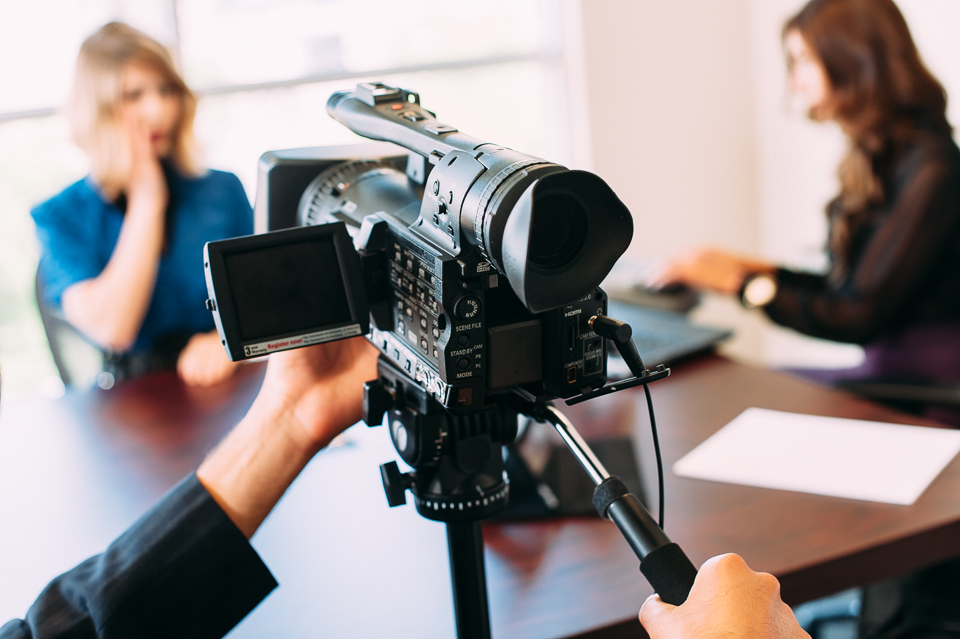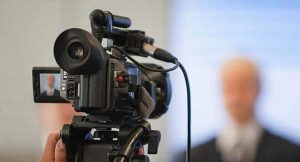Understanding how legal videographers provide expert testimony in video authenticity cases
Checking Out the Different Sorts Of Legal Videographers and Their Distinct Offerings
Legal videographers play a crucial duty in the judicial process, each specializing in distinctive facets of court paperwork. Their competence varies from capturing witness testimonies to enhancing trial presentations. Understanding the different offerings of these professionals can brighten their payments to legal procedures. As the complexities of modern-day litigation grow, the significance of their functions comes to be progressively evident. What specific functions do these videographers serve, and exactly how do they influence the end results of cases?
Recognizing Legal Videography
Legal videography plays an important duty in the judicial procedure, supplying visual documentation that can boost the quality and accuracy of legal procedures. This specific area entails recording video recordings of different legal events, such as trials, hearings, and other substantial moments within the legal system. Legal videographers utilize sophisticated tools and strategies to guarantee premium footage, which can act as essential evidence throughout litigation.Understanding legal videography needs acknowledging its relevance in conveying info in an aesthetic format. The recorded video footage can help courts and judges much better understand the context and nuances of testimonies and occasions, potentially affecting judgments. In addition, legal videographers have to abide by stringent standards and requirements to maintain the stability of the recordings. Their job not only aids in protecting an in-depth account of procedures but likewise contributes to the total openness and accountability within the legal structure, making sure that justice is offered successfully.
Deposition Videographers
Deposition videographers play a crucial role in legal procedures by tape-recording witness testimonies for future recommendation. They make use of customized equipment and techniques to ensure premium video documentation that accurately catches the subtleties of each deposition. Understanding their methods and the significance of their work can improve the performance of legal discussions.
Role in Legal Procedures
While usually neglected, the function of videographers in legal procedures is necessary, particularly throughout depositions. These experts record witness testimonies, catching both verbal and non-verbal cues that can be crucial in court. Their recordings function as an exact representation of the deposition, supplying a dependable recommendation for attorneys and juries. Videographers assure that the setting is professional, minimizing disturbances and adhering to legal requirements. They are educated to handle numerous situations, including unforeseen disruptions or technical troubles, safeguarding the integrity of the tape-recorded product. Additionally, the visibility of a videographer can prevent evasive behavior from witnesses, advertising even more candid responses. Overall, their contributions substantially improve the clearness and effectiveness of legal proceedings.
Equipment and Strategies Used
The equipment and techniques made use of by deposition videographers are important for generating top quality recordings that precisely capture witness testaments. Professional-grade cameras, commonly with 4K resolution, guarantee clear visuals, while high-fidelity microphones catch audio without distortion. Videographers normally utilize tripods for stability and lighting equipment to boost exposure, particularly in less-than-ideal setups. Strategies such as mounting the witness effectively and maintaining appropriate angles are essential for sharing body movement and expressions. Several deposition videographers also use electronic editing and enhancing software to enhance the end product, guaranteeing quality and comprehensibility. Furthermore, they might incorporate time-stamping and comments throughout post-production to assist in recommendation during legal procedures, ultimately providing a comprehensive and trusted record of the deposition.
Trial Presentation Videographers
Trial presentation videographers play a vital duty in court setups by efficiently envisioning evidence and improving the storytelling procedure. Utilizing innovative innovation and specialized devices, they develop compelling presentations that aid juries and courts grasp intricate information. Their competence in efficient storytelling strategies additionally elevates the impact of legal debates throughout trials.
Duty in Court Setups
Often, legal videographers play a crucial duty in courtroom settings by capturing and presenting aesthetic evidence that boosts the clarity of legal disagreements. These specialists concentrate on recording witness testimonies, depositions, and critical evidence, guaranteeing that the procedures are properly recorded for future reference. Their work not just aids in the immediate presentation of cases but likewise acts as an important resource during charms or evaluations. Trial discussion videographers meticulously put together and modify video to develop engaging aesthetic narratives that attorneys can use to encourage discretionary. By incorporating visual elements into the trial, they substantially contribute to the total efficiency of the legal procedure, helping with a much more enlightened decision-making atmosphere within the courtroom.
Technology and Equipment Used
Modern trial presentation videographers rely upon innovative innovation and specialized devices to effectively capture and present evidence in the courtroom. High-def electronic cameras are typically used to ensure that every detail is recorded with clearness, while several electronic camera angles can enhance the visual narrative. Videographers often make use of wireless microphones to capture clear sound from witnesses and lawyers, lessening distractions. Furthermore, sophisticated software application devices permit real-time editing and enhancing and smooth integration of video, photos, and shows during presentations. Projectors and large displays are commonly utilized to show web content in an engaging fashion, ensuring that jurors and judges can quickly adhere to the procedures. This combination of modern technology and equipment is critical for producing impactful court room presentations that facilitate understanding and retention of details.
Efficient Storytelling Strategies
Catching top notch video clip and audio is simply the starting for test discussion videographers; efficient narration methods play an essential role in sharing complicated legal narratives. These professionals use various methods to enhance the clarity and effect of the product presented. By meticulously structuring the aesthetic and audio components, they develop a coherent flow that overviews jurors through the truths of the instance. Utilizing methods such as thematic framing, psychological charm, and sensible progression, they stress bottom lines and strengthen the total debate. Furthermore, integrating visuals, such as representations or computer animations, can streamline intricate ideas and maintain the target market engaged. Inevitably, test discussion videographers change raw video footage into compelling stories that reverberate with jurors, promoting informed decision-making in the court room.
Video Evidence Experts
Video clip evidence specialists play a vital function in the legal process, making certain that aesthetic recordings are properly recorded, preserved, and offered from this source in court. These specialists are educated to manage a variety of tape-recording equipment and strategies customized especially for legal settings. They concentrate on obtaining premium recordings that can hold up against examination, sticking to stringent methods to preserve the honesty of the evidence.Often associated with the documentation of crime scenes, depositions, and witness statements, video clip evidence specialists are knowledgeable in producing video that is both clear and reputable. They are likewise well-informed about legal requirements and needs, making sure that their job follows jurisdictional regulations. Furthermore, these specialists might assist in the post-production process, editing and format video clips for ideal discussion. Their experience help lawyers in effectively sharing their instances, making the function of video clip proof specialists necessary in the pursuit of justice.
Court room Videographers
While the courtroom typically serves as the phase for critical legal process, court room videographers ensure that these moments are documented with accuracy and clarity. Their key role is to record all facets of a trial, consisting of witness statements, opening up and closing declarations, and court responses. Using specific devices, court videographers guarantee that sound and video clip high quality meet the requirements required for legal documentation.These professionals are adept at the office unobtrusively within the court room setting, navigating through the necessary methods and keeping the stability of the legal procedure. They frequently team up very closely with attorneys to comprehend details best site demands, making sure that vital elements are videotaped for future reference.Furthermore, court videographers play an important role in protecting the credibility of the proceedings, offering a vital source for appeals or additional lawsuits. Their knowledge warranties that all tape-recorded product works as a trustworthy account of the courtroom events for all celebrations entailed.

Post-Production Services and Modifying

After the courtroom procedures are tape-recorded, the emphasis changes to post-production solutions and editing and enhancing, which play a significant role in improving the caught material. Legal videographers use specialized software program to enhance video clip top quality, making sure clearness and professionalism. This phase usually includes shade adjustment, audio enhancement, and the elimination of any kind of nonessential video, developing a systematic story that lines up with legal standards.Additionally, videographers may incorporate graphics, notes, or captions to supply context or emphasize essential information. The editing and enhancing procedure additionally entails organizing the video chronologically or thematically, making it less complicated for legal groups to reference specific segments during tests or depositions. Legal videographers often prepare last edits in various layouts to fit various systems and usages, ensuring access for all stakeholders involved. Eventually, reliable post-production solutions are important for generating top notch legal video clips that sustain the instance available.
Often Asked Questions
What Qualifications Should I Search for in a Lawful Videographer?

How Do Legal Videographers Ensure Video Clip Quality and Integrity?
Legal videographers guarantee video high quality and dependability with high-def devices, careful illumination, and sound administration - legal videographers. They likewise comply with legal requirements, utilize back-up systems, and conduct detailed pre-production preparation to minimize potential concerns throughout recordings
What Equipment Do Legal Videographers Generally Make Use Of?
Legal videographers typically utilize high-definition cams, tripods for stability, exterior microphones for clear sound, and illumination equipment to enhance visibility. They may you could try here additionally utilize editing software program to ensure sleek and professional final products for legal proceedings.
The length of time Does the Modifying Process Typically Take?
The editing and enhancing process for legal videographers commonly varies, ranging from a couple of hours to several days. Elements such as video complexity, needed high quality, and particular client requests greatly affect the general time dedication needed for completion.
Are Legal Videographers Acquainted With Court Room Etiquette?
Legal videographers typically possess a solid understanding of court room etiquette - legal videographers. Their training often consists of expertise of correct actions, tools positioning, and respect for legal proceedings, ensuring their job aligns with the formal environment of the courtroom